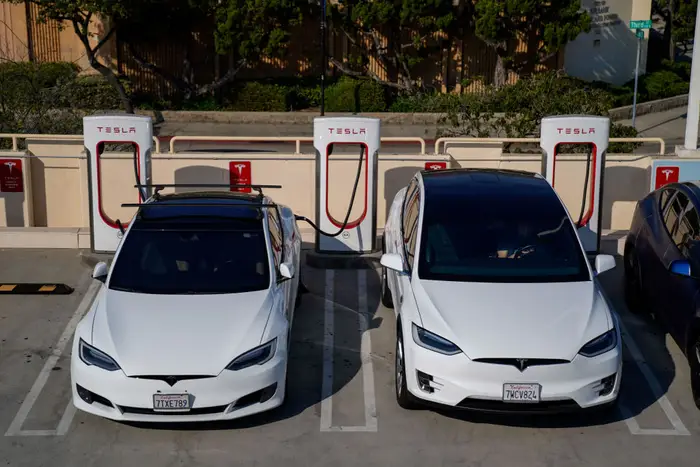In 2023, the automotive landscape is more diverse than ever, with electric vehicles (EVs), hybrids, and traditional gas cars each competing for the attention of cost-conscious drivers. Did you know that according to Bloomberg Green, sales of EVs are projected to surpass 10 million units globally this year? With this surge, understanding the financial implications of each vehicle type is crucial. This article will help you navigate the pros and cons of EVs, hybrids, and gas cars, focusing on what matters most to your wallet.
Understanding the Costs: EVs vs Hybrids vs Gas Cars
Initial Purchase Price
When it comes to the initial purchase price, gas cars still generally hold the advantage. According to AutoCar, the average price of a new gas car in 2023 is around $25,000. In contrast, EVs, despite their decreasing costs, still average about $35,000, thanks to the high costs of lithium-ion batteries. Hybrids sit in the middle, averaging $30,000.
- EVs: Higher initial costs, but federal tax credits and state incentives can significantly reduce the price.
- Hybrids: Moderately priced with some incentives available, making them a balanced choice.
- Gas Cars: Lowest initial cost, but fewer incentives.
Running Costs
Fuel and Charging
Fuel efficiency is where EVs shine. InsideEVs reports that the average cost to charge an EV is about $0.13 per kWh, translating to approximately $500 per year based on typical driving habits. Hybrids, with their dual power sources, offer savings but not as pronounced, averaging about $1,000 annually. Gas cars, with fluctuating fuel prices, can cost upwards of $1,500 per year.
- EVs: Lowest annual charging costs; savings increase with home solar options.
- Hybrids: Moderate savings; best for mixed driving environments.
- Gas Cars: Highest fuel costs, subject to market volatility.
Maintenance and Repairs
EVs have fewer moving parts, which often translates to lower maintenance costs. As reported by TechCrunch, EV owners can expect to pay around $300 annually for maintenance, compared to $500 for hybrids and $800 for gas cars.
- EVs: Minimal maintenance due to fewer mechanical parts.
- Hybrids: Moderate maintenance; complexity of dual systems can add costs.
- Gas Cars: Highest maintenance costs; frequent oil changes and part replacements.
Environmental Impact and Long-Term Savings
Environmental Considerations
From an environmental standpoint, EVs are the clear winners. CleanTechnica highlights that EVs emit zero tailpipe emissions, significantly reducing their carbon footprint compared to hybrids and gas cars. Hybrids offer a transitional solution, reducing emissions by 25-30% over gas cars.
- EVs: Best for the environment; contribute to cleaner air and reduced greenhouse gases.
- Hybrids: Better than gas cars; a step towards sustainability.
- Gas Cars: Highest emissions; less environmentally friendly.
Resale Value
The resale value of a vehicle can significantly impact long-term costs. According to Reuters Mobility, EVs have seen an increase in resale value, particularly for popular models like the Tesla Model 3. Hybrids also maintain good resale value due to their fuel efficiency. Gas cars, however, depreciate faster, especially as the market shifts towards greener options.
- EVs: Increasing resale value; demand for used models is rising.
- Hybrids: Stable resale value; appealing to budget-conscious buyers.
- Gas Cars: Faster depreciation; less demand in future markets.
Making the Right Choice: Practical Tips
How to Choose the Right Vehicle for Your Needs
- Assess Your Driving Habits:
– If you have a short daily commute, an EV might be ideal.
– For mixed urban and highway driving, consider a hybrid.
– If you frequently drive long distances, a gas car could still be practical.
- Consider Charging Infrastructure:
– Check local availability of charging stations.
– Home charging solutions can enhance EV convenience.
- Evaluate Incentives and Discounts:
– Look for federal and state incentives for EVs and hybrids.
– Factor in potential savings on taxes and registration fees.
- Think Long Term:
– Consider potential increases in fuel prices.
– Evaluate future resale value and market trends.
Where to Buy
For EVs, brands like Tesla, Rivian, and Hyundai offer direct-to-consumer sales, often with online configurators. Hybrids are widely available through traditional dealerships, with Toyota and Ford leading the market. Gas cars remain the most accessible, available from numerous manufacturers globally.
Conclusion: Which is Best for Your Wallet in 2023?
Ultimately, the best choice for your wallet in 2023 depends on your personal circumstances, including driving habits, environmental priorities, and financial considerations. While EVs offer the greatest long-term savings and environmental benefits, hybrids provide a balanced approach, and gas cars remain the most affordable upfront.
As we look to the future, the trend towards electrification is clear. With advancements in battery technology and expanding charging networks, EVs are becoming more accessible and practical. What do you think? Are you ready to make the switch, or does a hybrid or gas car still fit your lifestyle best? Share your thoughts and join the conversation as we navigate the evolving world of automotive technology.

